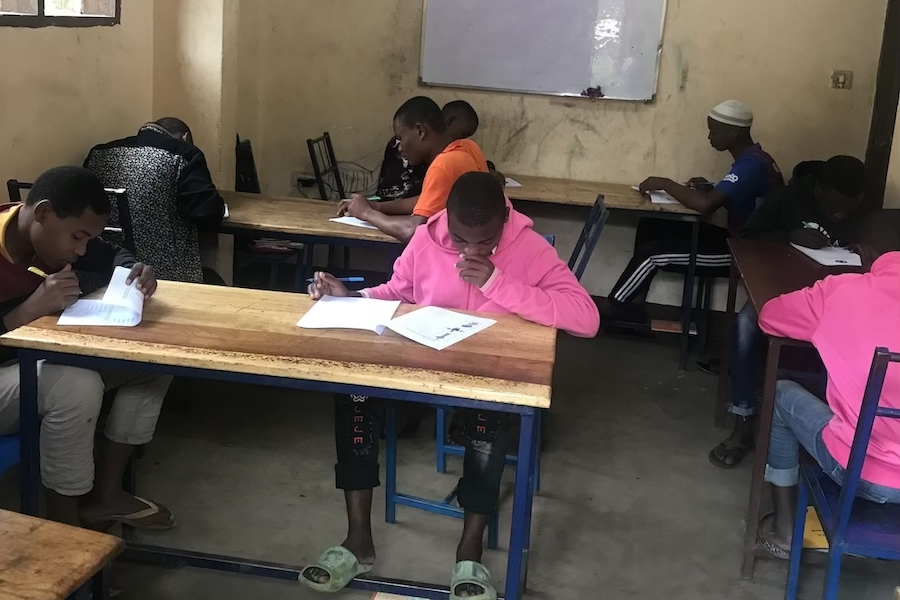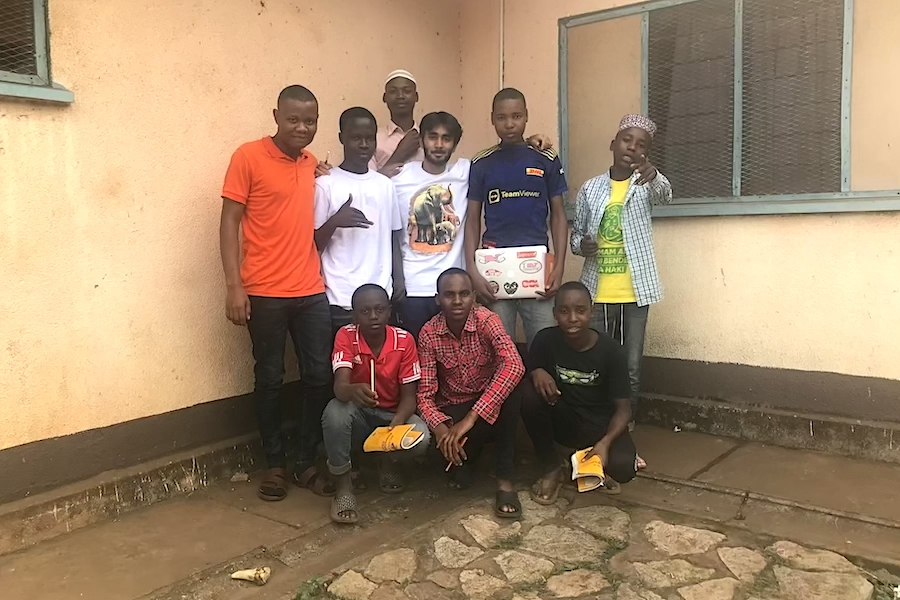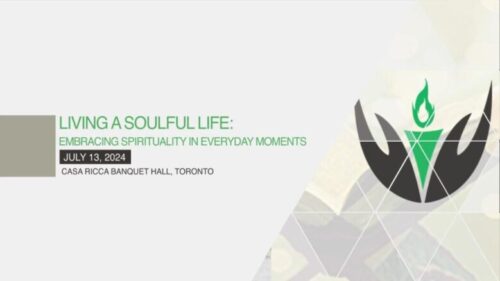It was my third week in Moshi as a volunteer teacher. From day one I was fully immersed in the local lifestyle, and as such, I understood the depth of poverty faced by the students at Kijana Kwanza. Or so I thought. A leisurely day trip to Marangu Falls changed that.
My companion to the waterfall was a 17-year-old student from my class. He was so excited. During the one-hour journey to the falls, he spoke about how it was his first time. Little did I know “first time” meant his first time swimming—ever. When we arrived, he dove into the water fully-clothed, smiling ear to ear. His laughter and joy were heartwarming. Later, when he reluctantly emerged from the water, he refused to use a towel. He was thrilled to be soaking wet—and desperately wanted to head back home that way. So we got in the car and drove. On the way back, I thought about how “poverty” means much more than meagre income and living—it also means meagre opportunity.
Kijana Kwanza (KK) is an NGO based in Moshi, Tanzania, that is dedicated to supporting young people 14–25 through secondary school and beyond by providing food, shelter, educational resources and mentorship. It is an essential part of Moshi. The small town may be home to the big Mount Kilimanjaro, but in many ways its challenges are equally large. Tourism is Moshi’s only real revenue source. Consequently, poverty plagues much of the city. KK operates not as a school but rather as an institution that provides extracurricular development and enrichment, including sports, arts and crafts, as well as computer training—areas neglected in the Tanzanian school curriculum. It gives those who don’t excel in traditional academic environments the opportunity to find their passion. Managed by local Tanzanians, KK nurtures creative leaders and change-makers, creating a self-sustainable organization that also feeds talent to local communities in the region.
For months prior to my summer trip to Moshi, I had been helping Kijana Kwanza virtually by creating educational resources for them to use in the classroom. Unfortunately, the distance limited my impact. So when the founder invited me to become their first in-person volunteer, I jumped at the opportunity. Simultaneously though, I found the idea of living on my own in Tanzania for a month slightly intimidating, for I didn’t even speak a word of Swahili. Then there were my preconceived notions: Was it safe? Would I get malaria? What would I eat? During the nights leading up to my departure, I barely slept.

In Moshi my primary focus was to develop a curriculum and teach English. Of my class of eleven students, five had not attended secondary school. Working with the students, I learned about the educational standard in Tanzania. For example, the students in my class that had not attended secondary school were often abused by teachers in primary school—verbally berated and physically hit with a stick—stripping them of the confidence to ask questions in class. There were three students older than me (I am 16) that could not read and write in their native language, Swahili. Illiteracy meant they could not go on to secondary school, confining their career opportunities to the most grueling, low-paying jobs, if any, in the city. Instead of high school, many students attend religious programs that are run by charities—the youth receive food, shelter and religious knowledge, but are not exposed to standard curricula.
Still, by becoming friends with my students, I learned there were many similarities between us despite our disparate life experiences. Outside of the classroom, we played soccer, draft (checkers) and pool. My new friends also exposed me to a wider reality. They would eat the same food for lunch (ugali/cornmeal) and dinner (rice) daily. They also explained that it is common for entire villages to share clothes. I came to realize choice is a luxury that we in the West take for granted.
Who knew that one month abroad could have such an impact on the lens through which I perceive the world? My passion to help has been supercharged by my firsthand connections. Now back in Canada, I am working hard to support the awe-inspiring work being done to uplift Moshi’s struggling communities. This includes managing the fundraising campaign I created to equip the computer lab planned for the second shelter KK is currently developing for their students. This initiative will impact the lives of 200 people and an entire small town—one child at a time. It is the epitome of development work at the grassroots level. And I hope that as you see the potential Kijana Kwanza has as an opportunity maker, you also realize that there is a great opportunity for all of us to reach out and help.



